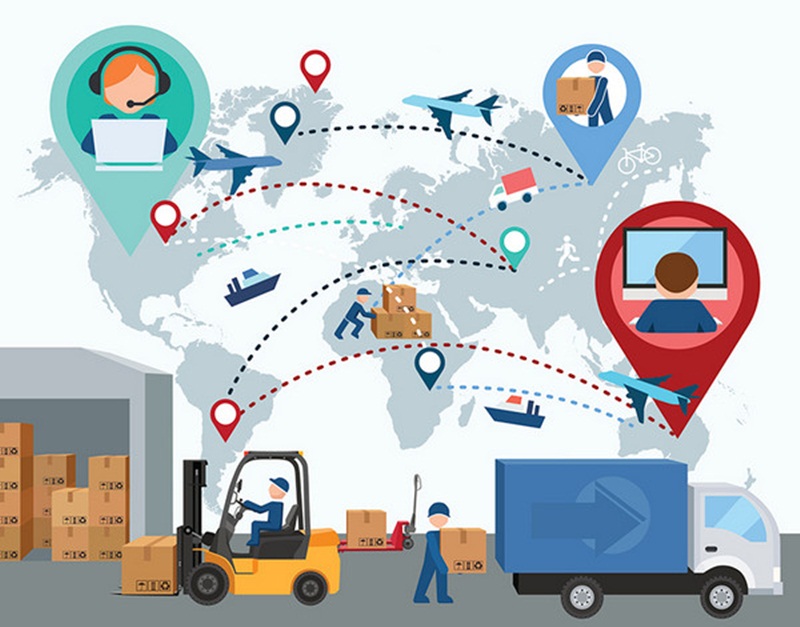This article was contributed to TechCabal by Bonface Orucho, via bird story agency.
Africa’s logistics sector is growing into a lucrative market and strategic hub within the global logistics network, as investors’ confidence in the sector increases.
A new report by logistics company Agility confirms the global logistics industry is considering expansion plans or first-time investments in the continent’s logistics sector.
According to Agility Vice Chairman Tarek Sultan, “This is the most optimism we’ve seen about Africa in the 15 years of the Index.”
Notably, 47.4% of respondents are planning additional investments in Africa, while 14.2% of the logistics executives from different companies are planning first-time investments on the continent. Only 6.6% of the executives are planning to exit or scale back from certain African markets.
This report coincides with increased investment in Africa’s logistics sector, with railroads and ports undergoing renovations and tech-driven solutions targeting emerging opportunities like intra-African trade.
A major upgrade to the Lobito Corridor, a close to 100-year-old rail network linking the mineral-rich Democratic Republic of Congo (DRC), Angola, and Zambia) to the Atlantic Ocean, received a major boost recently at the Mining Indaba in Cape Town. The US and EU-backed corridor operators signed a deal with its first customers, who committed to using the railroad to transport minerals upon its launch in 2025.
Trafigura, a Singapore-based multinational commodity trader, along with the Kamoa-Kakula copper mine (a mine in the DRC jointly owned by Ivanhoe Mines and China’s Zijin Mining Group) will export up to 450,000 and 240,000 metric tons of copper, respectively, via the railroad.
According to Jeremy Weir, Executive Chairman and CEO of Trafigura, these commitments will grow to make the corridor one of the leading rail transport links in sub-Saharan Africa.
Revitalisation of the TAZARA railway, another logistics route connecting mineral-rich Zambia with the Indian Ocean via Tanzania, is on the negotiation table, with China proposing to inject $1 billion in its rehabilitation, according to the International Railway Journal.
Elsewhere, the port of Maputo in Mozambique is the latest of many African ports to attract deep-pocketed global investors keen to invest and expand their operational capacity and general efficiency.
According to a 2024 Bloomberg report, DP World, working with Grindrod Ltd., will pump $2 billion toward port expansion after winning a 25-year concession extension deal that will end in 2058.
As international investors increasingly eye investments in the continent’s logistics sector, homegrown companies from established operators like Grindrod to startups are scaling operations and leveraging technology to build logistics services across Africa. Many of these companies are responding to the recently signed African Continental Free Trade Area (AfCTFA) agreement, which will see the elimination of tariffs between member states.
Moroccan logistics tech startup Logidoo announced in mid-February it had raised funding to expand an end-to-end logistics offering to 5 new African markets. The startup already has active operations in 8 African countries.
There has been a steady rise in the number of similar tech-led logistics startups in Africa. Tracxn.com, a startup tracking platform, shows that there are an estimated 1,218 logistics tech startups operating in Africa today.
According to Africa: The Big Deal, startups in the logistics and transport sectors were among the top three most-funded sectors last year, raising some $210 million.
According to the UN Economic Commission for Africa, AfCFTA will boost intra-African trade by around 40%. The UN body called on African governments to “implement the Inter-Governmental Agreement on the Trans-African Highways; finance Road Safety; sign the Solemn Commitment to the Single African Air Transport Market (SAATM); fully implement the Yamoussoukro Decision on the liberalization of air transport; sign and ratify the Luxembourg Rail Protocol to attract private sector investment in rolling stock; support the civil aviation industry” to fully benefit from AfCTFA.















